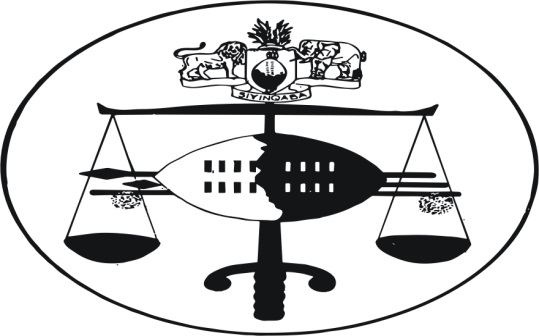
IN THE HIGH COURT OF SWAZILAND
JUDGMENT
HELD AT MBABANE Review Case No. 107/2016
In the matter between:
REX
VS
MCOLISI TFWALA
Neutral citation: Rex v Mcolisi Tfwala (107/2016) [2016] SZHC 38 (29 February 2016)
CORAM MAMBA J
CONSIDERED: 29 February, 2016
DELIVERED: 29 February, 2016
Criminal Law – Review – Sentence on a Contravention of Section 21(1) of the Liquor Licensing Act 30 of 1964 (as amended). Sentence not to be in excess of a fine of E200 or 12 months imprisonment. Court imposing a fine of E2000.00. On review, sentence set aside and substituted with the maximum sentence of E200 or 12 months imprisonment.
[1] This matter comes before me on automatic review from the Magistrate’s Court in Manzini.
[2] The accused, a 28 year-old male person of Ndzevane area, made his first appearance before the said court on 07 July 2015. He was unrepresented by Counsel and his rights to legal representation were explained to him by the trial Magistrate. He elected to conduct his own defence.
[3] The accused faced three counts. The first two counts alleged a contravention of section 21(1) of the Liquor Licensing Act 30 of 1964 (as amended). The charge sheet alleged that on two occasions during the month of July 2015 the accused contravened the said provisions of the Act in that he unlawfully sold liquor to the public whilst he had no license to do so. The charge sheet also specified the types or nature of the liquor that was the subject of the charges. Incidentally, cigarettes are also listed as some of the goods or items sold by the accused at the relevant time.
[4] The third count charged a contravention of section 43(1) of the Criminal Procedure and Evidence Act 67 of 1938 (as amended) in that whilst under arrest for the charges referred to above, the accused unlawfully and intentionally escaped from lawful custody.
[5] On being arraigned, the accused pleaded guilty to all three counts. His pleas were accepted by the crown and in consequence thereof the court convicted him on all three counts.
[6] The accused was a first offender; the crown conceded. After mitigation, the Learned Magistrate sentenced him to pay a fine of E2000-00 or undergo imprisonment for a period of ten months on each of the contravention of the Liquor Licensing Act. A similar sentence was imposed on the third count. The sentences were ordered to run consecutively. Thus, the effective sentence is an order for the payment of a sum of E6000-00 failing which to serve a term of imprisonment for thirty months.
[7] The sentence on the third count seems to me to be in order. However, this cannot be said of the sentences imposed in respect of the other two counts. Section 21(1) of the Liquor Licensing Act 30 of 1964 (as amended) provides as follows:
‘21. (1) Subject to subsection (2), a person who sells, or otherwise deals in, liquor without a licence shall be guilty of an offence and liable –
on first conviction, to a fine not exceeding two hundred emalangeni or, in default of payment thereof, imprisonment not exceeding twelve months; and
on second or subsequent conviction, to a fine not exceeding four hundred emalangeni or, in default of payment thereof, imprisonment not exceeding two years or both.’
So, plainly therefore, the Learned trial magistrate was in error in imposing a fine of E2000-00 on the accused for the said contravention. The maximum fine permissible in terms of the quoted section is E200-00. The fine imposed by the Magistrate is nine times more than that which is legally permissible. This cannot be allowed to stand and is hereby accordingly set aside.
[8] Trading in liquor without the requisite license is, no doubt, a serious infraction of the applicable law. The crown prosecutor obviously did not think so and that is why he accepted the plea of the accused and did not tender any evidence aliunde to prove the commission of the offence. The matter was thus dealt with in terms of the provisions of section 238 of the Criminal Procedure and Evidence Act 67 of 1938 (as amended). As a result of these provisions the magistrate could not impose a custodial sentence without the option of a fine. That is, however, water under the bridge now.
[9] The sentence imposed on the accused in respect of count 1 and count 2 is substituted with the following sentence:
The accused is ordered to pay a fine of E200.00 failing which to serve a term of 10 months of imprisonment on each count.
[10] There is no indication on the court record before this court whether the accused was able to pay the fines imposed on him. If he has already paid, a sum of E3600.00 is to be refunded to him, this being the difference between the fine of E4000.00 erroneously imposed and the sum of E400.00 that should have been imposed. It is so ordered. The accused is to be notified of this order.
[11] Bar the above, the rest of the proceedings herein, were, in my view, in accordance with real and substantial justice.
MAMBA J